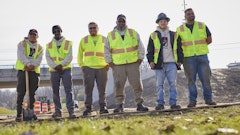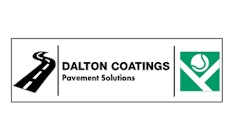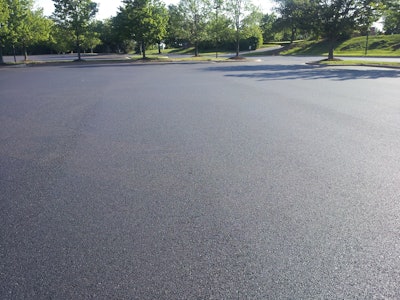
“The plan was to be the crème de la crème of driveway companies,” Addington says. “We were going to give great service, do great work and charge a premium for it.”
And that was that. Nothing spectacular, nothing huge, just a driveway paving business that could fill a niche in the Virginia market and provide steady earnings for the two of them. But even best-laid plans can be... improved.
Today Pro-Pave, Sterling, VA, generates 65% of its work from paving and pavement maintenance and 35% from concrete work – mainly sidewalks, dumpster pads and curb and gutter. The company employs 130 people, with 40 people manning eight concrete crews and 80 people manning 11 paving and pavement maintenance crews. Most workers are skilled in one material or the other but a number are trained and skilled in both and are able to float back and forth as needed. The company averages 7-10 jobs a day, usually three paving, three concrete, one cracksealing-and-sealcoating job, and usually a grading job to prepare for the next day’s paving.
Martin spends his days in the field, bouncing from job to job and checking in with each crew. Addington spends his days on the business side of things. And, unlike the direction and growth of their business, that division of labor is exactly how they’d planned it.
An Atypical Startup
The two had been long-time friends, with Martin running his own landscape business, Martin Lawn & Landscape, which still operates, working on residential and light commercial properties. Addington had been a successful salesperson, first selling titanium nuts and bolts and then raising money for hedge funds. When Black Friday hit in 2000 Addington suddenly found himself out of a job. He and Martin then had a conversation.“He suggested we start our own business, specifically a business paving driveways,” Addington says. “He told me ‘I know contracting and machines and you know how to sell. So you go sell ‘em and I’ll knock ‘em down’.”
And the two have been “knocking them down” ever since. But as they learned more about the business and the industry they altered their plans, their projections, and their focus. What they developed is a thriving, organically growing full-service paving and pavement maintenance operation.
It Started with Paving Driveways
As planned, Pro-Pave started out paving driveways. They bought a used Mack dump truck, a trailer, a Gehl paver box and skid steer and a Wacker RD11 roller.
“Then we dropped an ad in Val-Pak and sat and waited for the phone to ring,” Addington says.
They didn’t have to wait long. He says they had some driveways already in the pipeline through the landscaping company, and “the phone just started blowing up!
“We’d used a coupon with no expiration date and we offered 20% off on paving driveways,” Addington says. “We think we got such a great response because we don’t think anyone ever did that.”
Anyone starting a paving business would quickly realize they need an experienced crew or at least crew leader, and Pro-Pave was no exception. But what was different for them, and what enabled the contractor to get a running start, was they landed a foreman at the start with just those credentials.
“It was just by happenstance,” Addington says. “I was talking with my previous employer who had run the hedge fund, telling him what I was doing. He said right away that he knew a guy who’d been paving all his life. We met, hired him to run our paving, and relied on him to find the rest of the crew.”
By the end of that first season in 2001 they were paving one or two driveways every day. Success, right?
Kind of...
Addington says he and Martin had written an in-depth five-year business plan for a driveway-paving company, but not too far into that first season they realized they were surpassing their initial projections... But they weren’t making any money.
He says they did provide the great service they’d planned on and they did pave great driveways – but they weren’t charging the premium they intended or wanted to.
“We learned pricing the hard way,” Addington says. That’s because to price their work at the starts they examined what other contractors were charging for work, figured that was the market price, and priced their driveway paving jobs accordingly.
“We quickly realized the market was too low,” Addington says. “But not quickly enough. We were hemorrhaging money right out of the gate and it took us until the end of the first season to figure that out.”
To fix it they sat down, gathered all their expenses, and figured out all their job costs. They then applied a profit margin to those job costing results.
“Figuring out we were hemorrhaging was terrible; figuring out how to fix it was great,” he says. “Once we got our pricing down we were able to keep ourselves afloat and pay our bills and barely paying ourselves,” he says. “We weren’t making much money but we weren’t hemorrhaging either.”
Once they established the pricing they needed for the type of work and service they provided, they began to grow, slowly and steadily, with each year building on the year before. He says that at the time they were still doing only work related directly to driveway paving – grading, stone placement and asphalt laydown.
Premium Pricing Demands Premium Customer Service
But building a business on premium pricing requires providing – excelling – in an aspect of the business that others aren’t.
“You sure as hell can’t do it on price in this business because there’s always someone out there lower than you are,” Addington says. “So selling a premium service at a premium price is tough to do.”
In fact, he says his sales team often complains how much easier it would be if they could only drop the price. “They complain about the jobs they lose, and we understand that. But I just remind them that we make good money on the jobs we get,” Addington says.
“Plus, we’re trying to wear the white hat here as far as the industry is concerned. We’re trying to lead the industry by example by charging what we need to charge – because it’s what others should be charging too.”
“Customer service is the reason we can charge more,” Addington says. “What that means in one word? Responsiveness. It doesn’t matter if you can’t give them what they need or if you can give them what they need – you need to respond to them and we always do.”
He says that in addition to being responsive, Pro-Pave does everything it can to make the property manager’s life easier.“A good example is notification of tenants. We take that right out of their hands if they want us to,” Addington says. “Some property managers like to do it themselves. They want to maintain that direct relationship and communication with their tenants and that’s fine.
“But some property manager say ‘I don’t want to have to deal with the tenants on this because it’s going to be a real pain.’ And they’re right, it can be a real pain. They’re so busy with so many different aspects of the property that anything we can do to make their life easier is a good thing. So if they don’t want to do it we’ll take it all on for them: emails, signs for parking, notifications for each tenant. Property managers eat that up, and I think we excel there.”
Adding Commercial Work
Pro-Pave continued growing and in 2005 they decided to branch out into commercial work, doing almost exclusively new construction jobs working for general contractors.
“We were in growth mode and ready to take on bigger projects, but we also got a little luck because we were operating in Loudon County, one of the fastest-growing areas of the country,” Addington says. “So in 2007-2008 when much of the rest of the country was mired in recession, we actually thrived. No one took a bath around here like they did in other areas of the country. In fact, commercial work was better here than residential work. So our timing was great.”
They were also helped by the TARP money coming out of Washington D.C. “That helped because the big guys went after the infrastructure work, which was available because of the TARP funds,” Addington says. “They went after that and got out of our market and that opened commercial work up for us.”
Becoming a Full-Service Contractor
By 2008 Addington and Martin realized they needed to offer more services because property managers continually asked them to perform additional work.
“A property manager would say ‘I need a sidewalk replaced’ or ‘Can you sealcoat my parking lot?’ and it got to the point where we were just like the ticket broker who doesn’t have the ticket to sell you but because he knows you want to buy he says ‘I can get that for you,’” Addington says. “We realized we could get more work and we realized we wanted to become a full-service, one-stop shop for property managers.”
So they started offering and pavement maintenance work including cracksealing, sealcoating, and striping and concrete work – sidewalks, dumpster pads, curb and gutter.
Adding Concrete
And while pavement maintenance services are a natural outgrowth of the paving business, concrete work is more rare – especially to the degree Pro-Pave does it. But Addington says that adding concrete work played a significant role in their sustained growth once they got into the commercial market because it:
- Provided an additional revenue stream
- Provided a competitive service advantage over a contractor doing only asphalt
- Provided a competitive cost advantage over a contractor who relies on subcontractors and adds 15% to the sub’s bid
- Provided a quality advantage because Pro-Pave can train and control its crews to perform the work the way Pro-Pave wants the work to be done
Addington says Pro-Pave bought used service trucks, concrete forms and basic tools and that was all they needed to add the service. “The capital investment in concrete is not very expensive. It’s more a labor-intensive work and we already had the labor,” he says.
He says they aggressively pursue concrete work, particularly on new construction jobs, but they found the same thing they found when they started their business pricing driveways.
“Everybody does concrete too darn cheap,” he says. “For us to provide the service and perform the work the way we think it should be done we need to charge a premium. So we did and we expected our concrete work to decline as we raised our prices – but it hasn’t. We’re still right on target.”
Initially Pro-Pave provided all services except for paving through subcontractors, but that didn’t last very long.
“We did it that way because I found a couple subs that were hungry and who wanted to do it and using subs enabled us to provide the service to clients,” Addington says. “But we soon realized we weren’t able to provide the type of service we wanted to provide and that we should provide.”
So in 2010 Pro-Pave brought all its services in house, and the company now rarely uses subcontractors – in fact only to handle excess workflow.
Organic Growth
When Addington and Martin started Pro-Pave they thought they had identified a need that they could solve – so they thought they would have a successful business.
“When we started we thought if we can get to $10 million or maybe if we’re lucky $15 million that would be great and we’d really have something here,” Addington says.
In actuality they went from 0 to $30 million in sales in 16 years.
“It has been real organic, sustained growth,” he says. “It’s not like we had a real aggressive marketing campaign. Business just continued to grow steadily for us.”
As they did when they started Martin and Addington are working in another five-year window – but there are no plans to do anything different.
“We’re not looking to do anything different than we have and we’re not targeting a level of sales we’re trying to reach. We pursue small sustained growth and we’re more selective on our clients year to year,” he says. “If we stayed this size, we’re good. People say if you’re not growing you’re dying and we don’t see it that way.”
As with driveway paving, it took Pro-Pave and crews a while to get the hang of commercial work – and the differences between commercial and residential work (and commercial and residential clients). But it wasn’t long before Pro-Pave had surpassed the benchmarks in that original five-year plan.
Pro-Pave’s asphalt business clients include some of the nation’s top building contractors. Projects have included commercial paving work at some of the region’s most treasured sites, including Arlington National Cemetery and the Pentagon.
Paul Addington says Pro-Pave doesn’t have a problem with labor and that the retention rate for field employees is very high. “We also have an extremely good network for finding and hiring new people,” he says, adding that the company often turns away people who want to work for the company. “We work them hard like anybody else in this business but we overpay them to make sure we get the best people,” he says.
“We had a few driveways keyed up from the landscaping business and that helped, but it didn’t take long for us to get real busy,” Paul Addington says.
Initially serving only the Virginia market, Pro-Pave now provides paving, concrete, and pavement maintenance services throughout Virginia, Maryland and Washington, D.C.





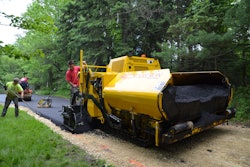

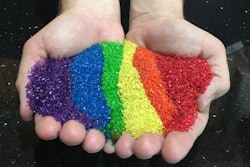



![Lee Boy Facility 2025 17 Use[16]](https://img.forconstructionpros.com/mindful/acbm/workspaces/default/uploads/2025/09/leeboy-facility-2025-17-use16.AbONDzEzbV.jpg?ar=16%3A9&auto=format%2Ccompress&fit=crop&h=135&q=70&w=240)



